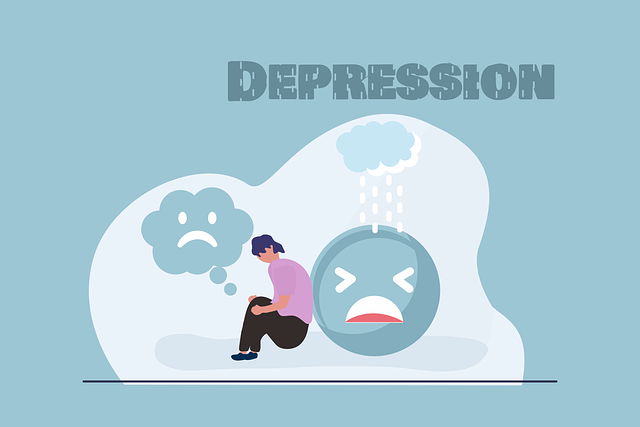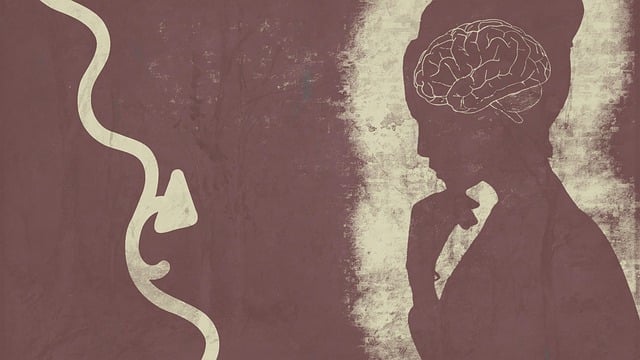Diagnosing mental health conditions accurately is challenging due to their complexity and subtle symptoms, exacerbated by individuals' reluctance to seek help. Alcohol abuse may mask underlying issues like depression. To improve diagnosis, multi-faceted strategies include community outreach, mood management education, and resilience building. Castle Rock Alcohol Abuse Therapy offers specialized programs and evidence-based practices for comprehensive assessment of co-occurring disorders. Innovative techniques like data analytics and AI-assisted evaluations, along with empathy building and resilience training, enhance patient engagement and therapeutic outcomes. Comprehensive training programs equip healthcare providers with the tools to make precise diagnoses, considering mental health interplay, cultural factors, and personal histories. A patient-centric approach, fostering direct communication and understanding individual experiences, also improves diagnostic accuracy and long-term care for conditions like alcohol abuse.
Mental illness diagnosis accuracy is a critical issue, with significant implications for patient care and outcomes. This article explores the multifaceted efforts to enhance diagnostic precision, focusing on innovative techniques, healthcare professional training, and patient-centric approaches. We delve into the unique role of Castle Rock Alcohol Abuse Therapy as a model for accurate assessment, highlighting its impact on mental health diagnosis improvement. By understanding challenges and implementing best practices, we can ensure more effective treatment pathways.
- Understanding the Challenges of Mental Illness Diagnosis
- The Role of Castle Rock Alcohol Abuse Therapy in Accurate Assessment
- Innovative Techniques to Enhance Diagnostic Accuracy
- Training and Education for Healthcare Professionals
- Patient-Centric Approaches for Better Diagnosis Outcomes
Understanding the Challenges of Mental Illness Diagnosis

Diagnosing mental illness accurately can be a complex task due to its multifaceted nature and often subtle symptoms. The process is further complicated by the fact that many individuals may not recognize or acknowledge their struggles, leading to delays in seeking help. This is especially true for conditions like alcohol abuse, which, under the surface, might manifest as coping mechanisms for underlying emotional or psychological issues. For instance, someone battling depression could turn to substance abuse as a form of self-medication, creating a complex web that challenges traditional diagnosis methods.
Efforts to enhance diagnosis accuracy often involve a multi-faceted approach. This may include implementing community outreach programs that raise awareness about mental health and encourage early intervention. By educating communities, individuals are more likely to recognize signs in themselves or others, prompting timely referrals for professional help. Additionally, focusing on mood management techniques and building resilience can empower people to navigate their mental health journeys more effectively. These strategies collectively contribute to a holistic understanding of mental illness, fostering more accurate diagnoses and ultimately guiding individuals towards Castle Rock Alcohol Abuse Therapy and comprehensive care.
The Role of Castle Rock Alcohol Abuse Therapy in Accurate Assessment

Castle Rock Alcohol Abuse Therapy plays a pivotal role in enhancing mental illness diagnosis accuracy. Through specialized programs designed to address alcohol-related issues, therapists employ evidence-based practices tailored for individual needs. This holistic approach not only identifies co-occurring disorders but also fosters comprehensive mental health education, empowering individuals with the knowledge to manage their mood and alleviate anxiety relief.
Incorporating Castle Rock Alcohol Abuse Therapy into diagnostic processes ensures that underlying issues are thoroughly assessed. By recognizing the intricate relationship between alcohol abuse and mental health, therapists can provide more precise diagnoses. This meticulous evaluation enables healthcare professionals to design targeted Mental Health Education Programs, ultimately improving overall well-being by offering effective strategies for mood management.
Innovative Techniques to Enhance Diagnostic Accuracy

In the pursuit of enhancing mental illness diagnosis accuracy, innovative techniques are reshaping the landscape of Castle Rock Alcohol Abuse Therapy. Beyond traditional assessments, therapists are employing advanced tools like data analytics and AI-assisted evaluations to pinpoint symptoms with greater precision. These methods not only streamline the diagnostic process but also ensure a more tailored approach to treatment planning, considering individual patient factors.
Empathy building strategies and resilience training, integral components of these innovative techniques, play a crucial role in improving patient engagement. By fostering open communication and enhancing emotional understanding, therapists create a safe space for clients to share their experiences. This, coupled with improved mood management skills, enables patients to actively participate in their care, leading to more effective outcomes.
Training and Education for Healthcare Professionals

Mental illness diagnosis accuracy has long been a concern in healthcare. To address this issue, there’s a growing emphasis on training and education for professionals. Programs like Castle Rock Alcohol Abuse Therapy focus on providing comprehensive training to healthcare providers, equipping them with the latest research, techniques, and tools needed to make precise diagnoses. These efforts go beyond treating symptoms; they involve understanding the complex interplay of mental health conditions, cultural factors, and personal histories.
By integrating Mental Health Policy Analysis and Advocacy into training curricula, along with Stress Reduction Methods and Crisis Intervention Guidance, healthcare professionals are better equipped to navigate the nuances of mental illness. This holistic approach ensures that patients receive not just effective treatments but also compassionate care tailored to their unique needs. Such initiatives contribute significantly towards improving diagnostic accuracy and enhancing overall mental health outcomes.
Patient-Centric Approaches for Better Diagnosis Outcomes

In recent years, there’s been a growing emphasis on patient-centric approaches to improve mental illness diagnosis accuracy. This shift prioritizes understanding each individual’s unique experiences and symptoms rather than relying solely on standardized tools. By incorporating direct communication with patients, healthcare providers gain valuable insights into personal challenges and environmental factors that might not be evident through traditional assessments. Such an empathetic approach, reminiscent of Castle Rock Alcohol Abuse Therapy, enhances diagnostic precision by addressing the complex interplay between mental health, lifestyle, and overall well-being.
Promoting positive thinking and mental wellness is integral to these efforts. Encouraging patients to openly discuss their thoughts and feelings creates a safe space for vulnerability, which can lead to more honest self-reflection. Moreover, burnout prevention strategies for healthcare providers are crucial to sustain consistent and accurate diagnoses over time. By supporting mental health professionals in managing their own well-being, we ensure they remain equipped to provide the best possible care, ultimately benefiting patients seeking treatment for various mental health conditions, including those related to alcohol abuse.
Mental illness diagnosis accuracy has seen significant advancements through innovative techniques, enhanced training for healthcare professionals, and patient-centric approaches. As previously mentioned, Castle Rock Alcohol Abuse Therapy plays a crucial role in accurate assessment by providing specialized care tailored to address complex mental health needs. By combining evidence-based practices with compassionate, patient-focused strategies, we can improve diagnosis outcomes and foster better mental well-being. Ultimately, ongoing efforts to refine diagnostic tools and educate healthcare professionals are vital steps towards ensuring individuals receive the most effective treatment for their unique mental health journeys.














